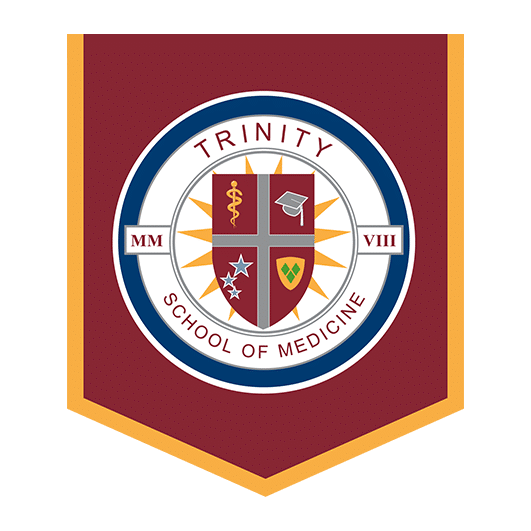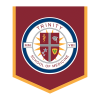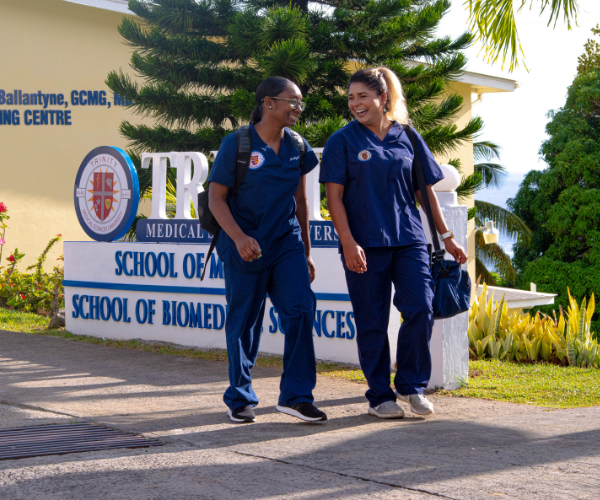Participation in medical education research has become necessary for almost every doctor; as a result, many medical students are choosing to participate in medical education projects as part of their medical training. Students are investing more time upfront to better understand what opportunities are available to them.
The quality of medical experience at Trinity School of Medicine is enhanced by the research and scholarly accomplishments of our students and faculty. One example is the Trinity Think Tank, a student-run organization whose mission is to inspire student engagement in research and academic activities. Think Tank meetings allow students to break into focus groups based on their specialty of interest to design and complete research projects. Peer mentors offer assistance on a wide range of topics, from research, journal publication, poster presentations, statistical analysis, and medical conference attendance. This organization that started with two students has grown into a campus-wide success, which has resulted in increased research participation and becomes a platform for discussions about the medical field.
This community within Trinity was created by two first-year students during their time together on campus. Vincent Shieh and Matthew Barvo.
Matthew and Vincent became quick friends as they found a common appreciation for the whole Trinity experience and formed a special bond here.
The two friends noticed that they were receiving similar questions from their fellow students – matters relating to research, running statistics, and getting published. They both had some research experience and felt they had an opportunity to share. Vincent had recently received the award for the most outstanding poster in the North American and Caribbean division for his study on gait at a world conference.
During this time, Matthew and Vincent attended a seminar that showcased the professor’s research. They immediately saw a gap where they could open a new avenue of connection between students and professors. Matthew states that this was the real catalyst for the Trinity Think Tank.
That was three terms ago – today, the Think Tank is actively facilitating research through weekly meetings that bring together passionate, bright students utilizing their strengths to benefit the medical community. One goal for this organization was to increase awareness of on-campus research. Participation in the Trinity Think Tank has resulted in several publications and many posters that have been accepted to national conferences. These Think Tank members represent Trinity student’s dedication to the medical community. In 2019, Trinity students contributed to 15 publications and 13 conference presentations. This new cohort of students will have a whole horizon of research opportunities to add to this number and make their mark in their field.
In addition to increasing opportunities and awareness, Vincent and Matthew thought it was essential to challenge members to think critically. The medical field comes with great responsibility for a young professional. Their goal was to create an environment where peers could converse openly about difficult topics such as ethics, the meaning of healthcare, and specialty-specific issues. Recently, they started their ethics workshop series, each week, a question is posed, and there is an honest, open discussion. Vincent gave us an inside look at one of these discussions by sharing a recent topic that was raised by a student: is healthcare a right or a privilege? As you can imagine, this sparked some debate. Still, with respectful communication and mediation, the group realized that they were all arguing based on different definitions of “healthcare,” “rights,” and “privileges.” After setting a baseline for discussion, the group felt like they came together to tackle a tough topic. Vincent says, “this was a huge win for all of us as we came together, created a conversation, and all learned something from one another.”
From this example, anyone can see how challenging it can be, to wrap your head around these serious yet vague concepts in medicine. Controversy, statistics, and editing can all be tedious and confusing when your sole focus is to help others. But to succeed in your mission to become a doctor, you must face all these challenges. Research is a critical part of that journey. Vincent talks about, as a student, you must attend class and read the books but having research experience develops more exceptional problem-solving skills and truly sets students apart by stating, “how do I connect a point A and a point Z, there are 24 letters in between but, being able to do that effortlessly just becomes second nature I think that’s what research helps with.”
Thankfully Trinity is a diverse community where we strive to help you find your place and your voice. Vincent and Matthew are prime examples of passionate individuals that knew a community was more robust when it came together to share unique perspectives and skills rather than be competitive individuals.
Our graduates will tell you that they attribute much of their success to the level of personal support they found at Trinity from faculty, staff, administration, and fellow students. The challenges of medical school are much more manageable when others around you are as invested in your success as you are.


